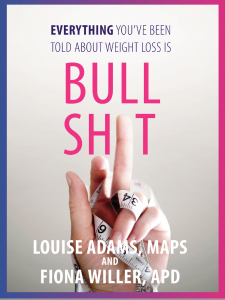When people come to see me, they’re usually in a pretty bad place. It’s a big decision to come and see a psychologist, and I admire every single client who is brave enough to walk through the door and ask for help.
I have noticed that whatever issues people are dealing with (eating problems, body hatred, relationship issues, low self-esteem, or some kind of life crisis), they are usually simultaneously judging themselves quite harshly for finding things difficult.
“I don’t know what’s wrong with me, I have nothing to be depressed about,” said a tearful older woman who is dealing with severe depression whilst caring for her dying mother. “This is a first world problem, right? I’m pathetic,” sneered an adolescent suffering with bulimia. “I’m such an idiot, I should know better” said a lovely client who struggles with alcohol use.
This harsh self-judgement seems to be a ‘default’ reaction to our own psychological pain. But when we do this, when we engage in such a dismissive, cold and harsh manner towards our own experience, it doesn’t tend to help things. In fact, it can add to the burden, adding yet another layer of suffering to an already difficult time.
Many of us aren’t even aware of this layer of judgement. Becoming aware of how we speak to ourselves is a major part of psychological therapy. Once we’re aware of our default patterns of self-talk, we can start using different strategies (such as mindfulness, CBT, acceptance and commitment therapy, and self-compassion) to change things.
It’s incredible how much of a relief it can be to stop listening to our own harsh self-talk, and to develop an alternative voice to listen to: one that is always supportive, bottomlessly kind, infinitely patient.
Self-compassion training lies at the heart of all of my sessions. Self-compassion may be understood as becoming your own best friend, as opposed to your own worst enemy. I think of self-compassion as a firm foundation upon which other psychological skills can be built. If we try to build psychological strategies on a foundation of constant self-judgement, the whole structure will be shaky; because each time we struggle, find things difficult, relapse, binge, purge, or fail in some way, we will turn on ourselves.
Self-compassion provides a sturdy foundation, an anchor point in life. Things don’t always go our way. All of us will struggle in life at some point. And when we do, it’s much better for us to be there for ourselves than to abandon us.
But how can we learn to turn towards self-compassion instead of our default judgement? That’s the tricky part!
One concept that can help is the idea of curiosity. This means trying to adopt a very interested, curious and non-judgemental attitude towards whatever it is you are going through.
One of my clients – I’ll call her Jane (not her real name) is fabulously creative, and when we were discussing the idea of curiosity, she explained that in her mind, even the word “curious” was an interesting one, containing all kinds of secrets, colours, patterns and codes. I am not nearly creative enough to design something as fantastic as she was doubtless imagining, but picture something along these lines:

It’s a pretty cool looking word, right? Jane then said that the word judgement looked totally different inside her mind –

For Jane, the term ‘judgement’ was associated with a more severe, austere and ‘caged in’ appearance. To me, the word ‘judgement’ looks like it’s in a prison cell. And that’s pretty accurate, because self-judgement keeps us locked up in endless cycles of shame.
I loved that conversation with Jane. Judgement kills off curiosity; it stops us feeling interested in whatever we’re going through. If we are always judging, we can’t learn anything about our issues or situations. We are just hating ourselves for going through it.
Curiosity always opens doors, allows us to observe, explore, and ultimately, learn.
Curiosity is the circuit breaker to self-judgement.
So here’s my tip for this week: to try your best to approach whatever you are going through with a sense of curiosity. Imagine that you are a scientist, collecting data on the most interesting subject you can imagine: you. Get utterly fascinated with your inner experience, all of the ways that your mind responds, reacts, feels, and acts. And if your mind tells you that adopting such a stance is just ‘self indulgent’ – notice that as the voice of self-judgement, and come back at it with a nice self-compassionate response (eg; ‘back off inner judge, I’m allowed to take care of myself!!’). And then, become once again incredibly curious about your mind’s tendency to judge everything that you do.
Here are some phrases to help you foster a sense of compassion and curiosity:
“That’s so interesting that my mind is saying this to me right now”
“What is happening for me at the moment?”
“How am I feeling/thinking right now?”
“What’s going on for me?”
“What do I need at this moment?”
“How can I help myself in this moment?”
“What would I tell someone I dearly loved who was going through this experience?”
“What is this experience telling me?”
“What can I learn from this?”
Try to write a few of these phrases down, or even send them to yourself as text alerts to your phone. With practice, and gradually, this curious stance will begin to take hold. I love this phrase from philosopher Thomas Hobbes:

Isn’t that great! Foster your lust!!


